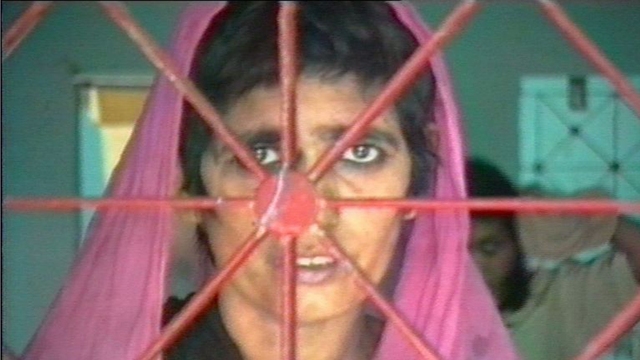Nightmare Behind the Veil
Persecution and discrimination of women in Pakistan
 Islamic Law was introduced into Pakistan in 1979. Discrimination towards women is now rife, many facing overwhelming injustices. It is common for women to be treated as the property of men, and are expected to do as they are told. Those that do not conform can find themselves sent to asylums, often overcrowded and with little psychiatric input. Others can be imprisoned for being a victim of rape, deemed an accessory to the crime.
Islamic Law was introduced into Pakistan in 1979. Discrimination towards women is now rife, many facing overwhelming injustices. It is common for women to be treated as the property of men, and are expected to do as they are told. Those that do not conform can find themselves sent to asylums, often overcrowded and with little psychiatric input. Others can be imprisoned for being a victim of rape, deemed an accessory to the crime.
In a bare prison cell a veiled teenage girl huddles against the wall. Ruqaiya Khan is in prison because she wants independence from her family and in Pakistan Islamic law says that a woman's place is in the home. Prison is one of many potential fates for those who rebel: in Karachi, one asylum holds 1200 women, overseen by only a single psychiatrist. "Why are they not discharging us?" demands one woman, who appears in full possession of her mental faculties. Abuse and over-work cause women to die on average younger than men. On any day up to 3,000 slave girls are for sale on Karachi's streets. Exploitation can begin when girls are very young. Anna Sultan, now fourteen, was enslaved when she was ten. "He threatened me and said I'll tie you up in the room", she recalls. "I'll kill you, maybe I'll strangle you. Nobody would ever know." She eventually escaped to a girls' home for ex-slaves. It is thought that even the government is involved in a protected and flourishing slave trade.
A film by Mark Stucke.
FULL SYNOPSIS

